Do you have feelings of guilt? Feeling guilty? Or dealing with guilt? If you answered yes to any of these questions, then you’re in for a treat as today you’ll learn how to deal with guilt mindfully.
But before we cover how to deal with guilty feelings, let’s first understand what is guilt?
What is guilt?
Guilt is an emotion that can make us feel badly about our past behavior. Therefore, guilt can be defined as an unpleasant feeling that we have when we think about something we’ve done wrong.
There are three main expressions of guilt: shame, regret, and remorse.
Sometimes we feel guilty when we know what the right thing to do is but do something else instead despite knowing better. Here is an example for each kind of guilt expression:
– Shame:
The feeling of shame arises from the perception that we have done something dishonorable, immoral, or improper.
In another word, shame is the feeling we get when we act in a way that conflicts with our own core values. Things like respect, kindness, honesty, and so on. When we do something shameful, we feel embarrassed about it because it goes against who we are as a person. Or it doesn’t align with the kind of person we want to become. People across cultures have described this type of feeling as “the worst” over time.
For example, a partner feels ashamed for cheating on someone they care deeply for, when, due to their busy schedule, they are not around enough to keep up with the relationship.
– Regret:
Regret is the feeling that we are responsible for something bad happening because of our actions (or inaction). Also, regret is the feeling we get when we wonder whether or not things turned out the way we wanted them.
Despite the fact that regret can be painful, it can also be healthy and productive if used to refocus, change directions, or take corrective action.
Suppose, for example, if a parent left their toddler alone all night while they went to a party and came back to find the toddler hurt from being left unsupervised. Someone with such guilt would likely feel regret frequently and feel an immense amount of guilt.
– Remorse:
Remorse is a feeling of deep regret and sorrow over the pain we’ve brought about because of our wrong-doing.
For example, When we hurt someone we love or talk poorly to a friend during a heated argument, we feel remorse.
How to process guilt?
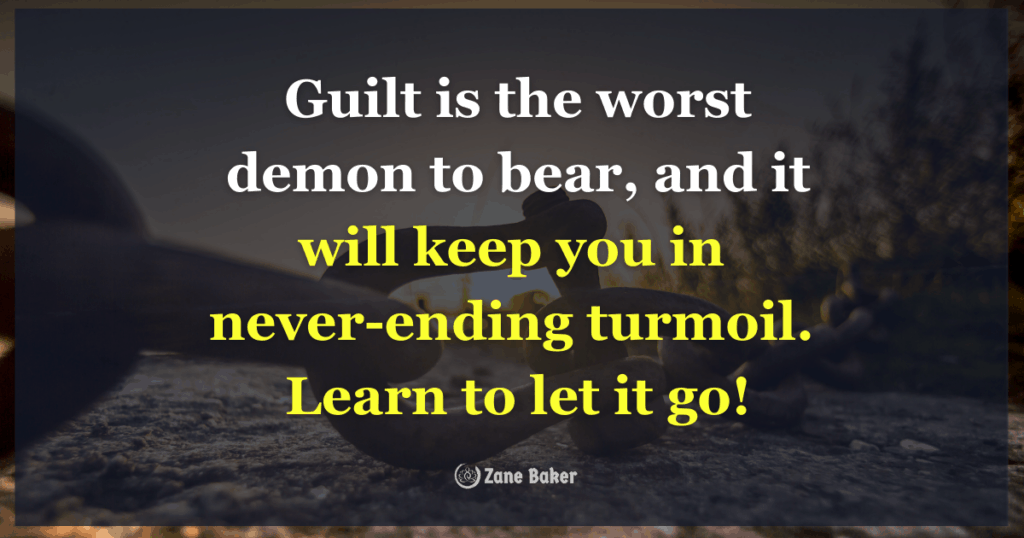
Guilt can be a difficult emotion to deal with, but there are tricks for how you could overcome it.
First of all, it is important to change your attitude toward guilt. Please hear me out…
Have you heard about the concept of healthy guilt?
Healthy guilt is the feeling of regret or remorse for something that you did wrong. It can be a good thing because it makes you want to make things right. One way to do this is by apologizing and making amends with those whom we have hurt. But there are other ways, too. In this post, I’ll share with you 10 ways to utilize healthy guilt to help you manage your emotional states.
We can sometimes use healthy guilt to guide us towards living up to our moral ideals by taking responsibility for our actions.
To process guilt mindfully takes commitment to excellence.
You must also believe that you can overcome guilt and understand that life may cause you to feel guilt at various points in your life.
Recognizing feelings of guilt, reflecting on them, and thinking positively are all healthy ways to handle excessive guilt.
Ok, friend, now let’s dive into 10 tips to help you deal with guilt and process guilt and anxiety mindfully.
1. Identify the source of your guilt
Throughout life, you will encounter a variety of situations where you may feel guilty about past actions. Once you identify the source of your guilt, finding a solution becomes easier.
To identify why you’re feeling guilty, it’s important to first understand the root cause for this emotion to occur.
You see, guilt isn’t something that just suddenly pops up out of the blue; there’s a reason why you feel guilty in the first place.
When you take the time to reflect on finding the source of your guilt by asking yourself some self-reflective questions, such as, why am I feeling guilty about this? If I feel guilty, what am I actually feeling guilty about? you will be able to uncover the root cause of your guilt.
By identifying the feeling of guilt and analyzing why you feel this way will help you move on and feel lighter.
When you feel guilty about something that happened at some point in your life; you’re holding on to a memory. Instead of focusing on guilty feelings, focus on creating a new experience that neutralizes the feelings of guilt, like correcting what made you feel guilty in the first place.
2. Acknowledge your guilt
Once you identify what you feel guilty about, it’s time to acknowledge your guilt.
Guilt often triggers our brains into thinking about what we can do differently.
In return, our minds automatically begin to wonder if there is anything we could have done differently. It may seem like this feeling will never end or that it will last forever.
However, acknowledging your guilt is a crucial step in dealing with guilt because here is where forgiveness comes into play. In order to feel completely free and have no guilt energy left at all, you have to understand what happened, emotionally feel remorse/regret for the action(s) that occurred in order to seek forgiveness.
Free yourself from guilt and shame and bad feelings by acknowledging that It’s ok that you may feel guilty from time to time. That’s life, negative emotions are part of the deal. While I don’t like to label emotions as positive or negative, I am using the term “Negative” here to help you understand the concept.
3. Make amends with people that were hurt by your behavior or words
Making amends with a person you might’ve hurt in the past is one of the most powerful ways to cope with guilt. In other words, if you’re feeling guilty about something you’ve said or done to someone else, making amends with the person involved is often the best way to make things better.
To do so, you must first accept that you were saying something offensive or hurtful to someone else and remember to practice self-forgiveness and ask for forgiveness from the other person, too.
A healthy way to stop the feeling of being guilty and to be in harmony with the world around you is to make amends for behavior or verbal transgressions.
Another excellent way to feel better about yourself is to go out of your way to apologize for any wrongdoings towards others (if someone else is still hurt by our behavior or action, it’s our job to make things right) – at least that’s how I feel about this.
Trust me…apologizing is never easy and it can be particularly challenging when you are the one who needs to apologize. Making mistakes is inevitable, and apologizing afterward is essential. Guilty feelings keep you trapped in what happened instead of helping you move forward. Remember that you’re human and at times you might say offensive or hurtful things. But instead of beating yourself up, take responsibility for your actions and make things right! Don’t forget to practice self-forgiveness.
4. Write down how you feel and why it makes you feel guilty, pour your feelings on paper so they don’t get bottled up inside you
Feelings of guilt make you human. Everyone feels guilty from time to time. It’s not something you can avoid. It’s inevitable that at least one time in your life, you will feel bad and/or guilty about something.
When you feel guilty about your actions and remorseful for what you’ve done, emptying your chest of these different emotions helps you feel better. One very effective and healthy way to do this is by journaling. (For more information about journaling, please read my post on journaling for beginners.)

One’s thoughts can have a negative impact on their emotions if they linger in their minds for too long. The act of writing them down will release these emotions and leave you feeling refreshed.
I consider the art of journaling a form of cultivating self-love and self-acceptance.
Many of us feel like there is nothing we can do to make things better especially when guilt and shame set in.
To feel less guilty about our actions, we must first recognize that we did something wrong and then work on making it right.
It’s best to correct a wrong in person, but If you can’t face the person face to face, then try writing the explanation/appology that another person is looking for on paper and share it with them.
To move forward in life, it’s key to accept when a mistake is done and learn something positive from the situation.
You might feel guilty from time to time but don’t let that control you. Learn to recognize when guilt and shame are causing anxiety or unhealthy emotions.
Undealt with emotional states make you feel like your life is out of control and may lead you to believe that all hope is lost. But remember, you made it this far, so never give up!
5. Ask yourself if there are any actions or behaviors that may have contributed to the situation for which you’re feeling guilty about
You can’t change the past, but you sure can learn from it.
The next time you feel guilty about something you did or said, consider whether your actions were actually responsible for the unfortunate outcome.
If they were, feeling bad about our decisions and for hurting others in some way is only natural. Guilt over something we feel we are responsible for can be a normal human reaction.
Mistakes happen in life, but holding on to what has happened is unhealthy and won’t change the past. Accept the role you played in the situation, make amends, seek forgiveness, then let it go.
When you change your behavior towards guilty feelings, you allow yourself to transform your experience.
When guilt is unaddressed, it can drag you down. However, guilt plays a positive role in helping you realize that you can do better. This type of awareness helps raise your vibration.
Learn How to Deal with Guilt Using Meditation
6. Take responsibility for your actions, but don’t dwell on feelings of guilt
If you’ve done something wrong, it’s important to take responsibility.
You cannot change what you did but you sure can focus on becoming a better person.
Our natural instinct is to think there is nothing we can do about a situation where we feel guilty. But trust me, self-blame is not the answer.
Feeling shameful can be hard to overcome if you have done something wrong. Sometimes this feeling will just linger on in your mind but try not to dwell over guilty feelings, especially if you did your best to make amends.
The next time you experience guilt, stop magnifying it by asking yourself over and over, “What is wrong with me?”. Instead, find healthy alternatives to process your guilt.
Energy work, meditation, subconscious reprogramming, and therapy can be great ways to learn how to cope with guilt and control your emotional states.
Embark on a guided meditation journey to help you overcome guilt. Our video is here to guide you.
7. Forgive yourself even if it seems like it would be too difficult
Forgiving yourself is an act of self-compassion.
When you have self-compassion, it’s like a gift to yourself. It is the realization that everyone makes mistakes and has flaws but no one should be merciless with themselves or tolerate being harshly critical of their own shortcomings. This can also mean giving ourselves permission when feelings of guilt surface.
Self-compassion allows us to take care of our mental health by understanding what triggers guilt, stress, and anxiety, and how much energy each situation requires before deciding if it needs more attention. Having self-compassion is a sign of high emotional intelligence. High emotional intelligence is linked to higher self-esteem.
In the event that one or more other people are involved, be honest with them about how you feel and why you feel guilty. Then, as soon as you and the other party have addressed your feelings, you can focus on seeking forgiveness.
To create a better future, it’s important to practice forgiveness not just around the topic of guilt but for other areas of life like letting go of self-criticism, perfectionism, and harsh judgment.
Reaching out to a therapist or an energy worker can help when you feel that intense guilt and shame are preventing you from enjoying the good things in life. Therapy is nothing to be ashamed of. A therapist can help you figure out what is wrong and work on a plan to feel happier. Of course, therapy might not be everyone’s cup of tea, but it’s important to change the way we think about mental health, in general, to make it more accessible for those who need it.
I offer emotional release sessions where I help the person I am working with to process their feelings and release any attachment through prayers and energy work. Browse our other great offerings if this type of work piques your interest.
8. Make a list of everything that is good in your life, including things like family, loved ones, friends, and work
One wonderful way to help with overcoming guilt is by practicing gratitude. No matter how wrong things may seem in our life, it’s very important to count our blessings.
How to deal with guilt mindfully is super easy when you make gratitude part of your life.
Always remind yourself that things could have been worse. Then focus on all of the good things in your life, and feel thankful.
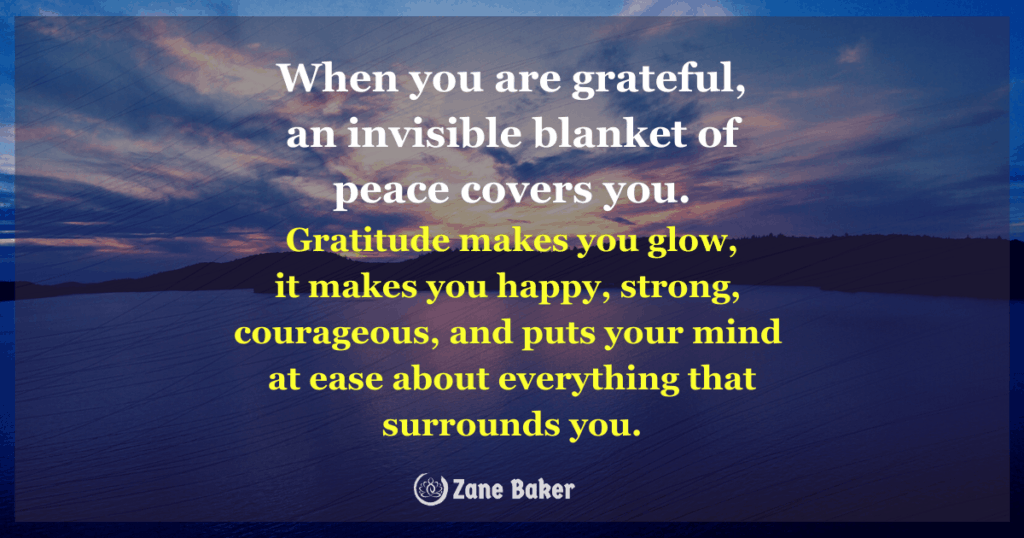
It can be helpful to remind ourselves how blessed we are in situations where unhealthy guilt habits may have formed.
Accept that you’re human, apologize for any mistake you made and focus on doing better in the future.
9. Focus on what you can do now to make things better
Constant feelings of guilt are a sign you’re not living in the present moment.
Holding on to guilt will lower your self-esteem. Trust me, I had to learn that the hard way!
The feelings of guilt might feel overwhelming, but don’t let it stop you from having self-compassion towards yourself. Especially when you feel overwhelmed by negative feelings.
If you could do something to make it better for yourself or another person, then please make things right. Otherwise, let it go and celebrate your growth.
Living in the present moment and not dwelling over what happened is a great way to release guilt from your consciousness.
10. Remind yourself that you are not perfect, no one is – everyone makes mistakes
We often feel guilty when we think of all our mistakes.
But guess what? We all make mistakes, including you and me. When you feel guilt, use that as a hint to do some personal development work. Work on releasing any unhealthy guilt emotion instead of continuing to punish yourself with guilt.
Self-punishment and self-blame through feelings of guilt are unnecessary. I personally feel it’s a waste of energy to let guilt take over our emotional and mental health.
When we put our focus on the journey rather than the destination, all ends well for us and everyone involved.
As I mentioned earlier, subconscious reprogramming, energy work, meditation, and therapy can be a great way to manage any unhealthy guilt or feelings.
Want to work with me directly? Book an emotional release session 👇
Many of us can benefit from learning how to deal with guilt.
Dealing with guilt is an important life skill. Once you feel like you’ve dealt with your guilt, feel good that you made the effort to improve
It doesn’t matter what kind of guilt you may feel. Whether it’s shame, regret, or remorse, it’s important to free yourself from those emotional traps.
Guilt can be a healthy emotion when it stems from our own bad behavior and it exists to help us recognize when we make a mistake and learn how to be better people.
Many times we find ourselves feeling guilty over things for which we really have no control over, such as events in the news.
This is the case of so-called “unhealthy” guilt. Unhealthy guilt can lead us to feel ashamed or carry around negative feelings that will cloud our judgment in life. Don’t make that mistake! Positively influence people by being the kind of friend, coworker, colleague, or human you expect others to be.
Now is the time for a change! Take charge, lead by example!
Feel free to share this article if it was helpful! Did I miss any tips? Let me know in the comments section below.
Please pin this post to your favorite Pinterest board using the Large P on the top left of this image👇
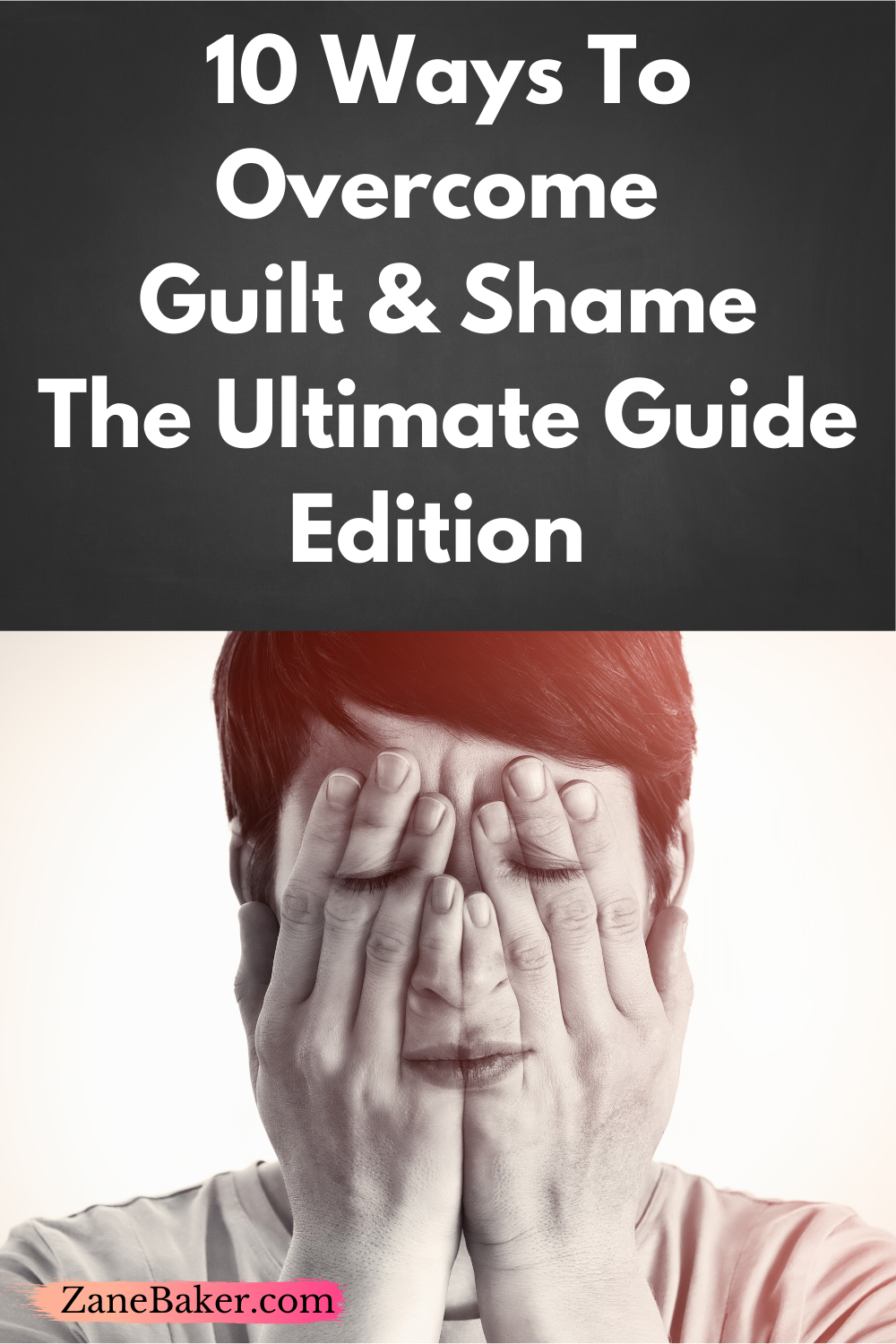
Disclaimer: This post is for informational and educational purposes only. This post is not medical advice and any health or mental health concerns must be addressed with your healthcare provider.

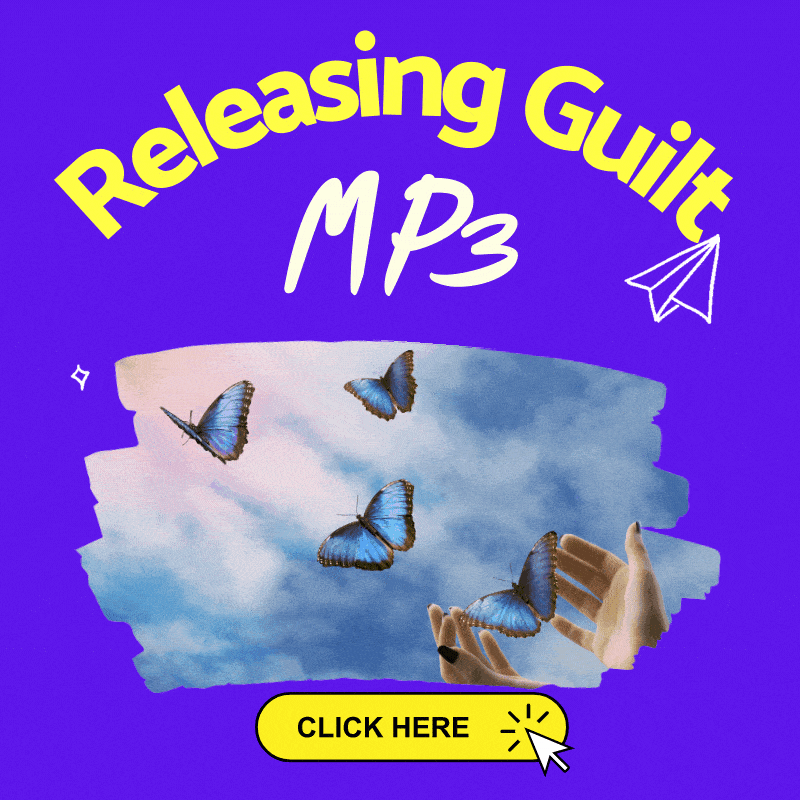



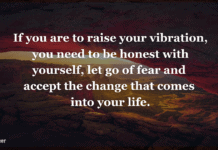
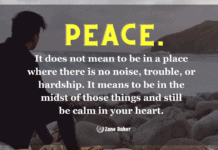




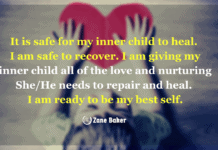
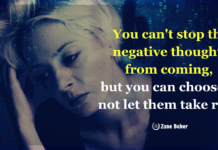
Facebook Comments